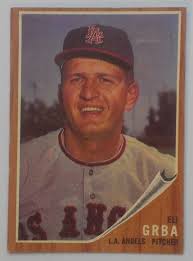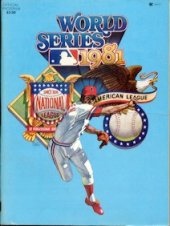Common to most other businesses, baseball teams determine for themselves whether they are successful or not. Also like other businesses, every team has a plan for how they expect to achieve success. While all teams want to be successful, it is mathematically impossible for every team to reach the level of success that is expected. Perhaps this is the best example of why there is and has always been so much turnover in regards to managers in major league baseball.
When the fortunes of a team take a turn for the worse, it is usually the manager that becomes the scapegoat. Players, especially in this day and age, make much more guaranteed money and in most cases, are more costly to the organization to replace. When the decision is made to change managers, it is not always a smooth transition from the first to the next. In fact, many times a team does not even start the search for the next manager until the current one is removed from his post. Hence, the "interim" manager is the placeholder until the team hires its next full time manager.
Of course, there are plenty of examples of placeholders becoming the next full time manager. The Atlanta Braves retained Brian Snitker, who was the team's interim manager last season. The Phillies did the same thing with Pete Mackanin, hired to replace Ryne Sandberg in 2015. When it comes to credit for managing games, the interim manager will always get credit for being at the helm during a season, even if it amounts to just one game. Just ask Dave Roberts, Brandon Hyde, Andy Cohen, Marty Martinez, and Eddie Yost. And Dick Howser, before he managed the New York Yankees in 1980, was the one game bridge between Billy Martin and Bob Lemon in 1978.
If we were to discuss some of the most successful and longest serving managers in major league baseball history, the names John McGraw and Connie Mack would come certainly up. In fact, McGraw and Mack have the distinction of serving the longest continuous tenures as manager of one team. (McGraw managed the New York Giants from 1902-1932 and Mack the Philadelphia Athletics from 1901-1950.) Not surprisingly, their runs did not go uninterrupted. McGraw left his post as manager of the Giants in 1924 and was replaced by his coach Hughie Jennings, the former manager of the Detroit Tigers. He came back before the season was over but left once again in 1925, once again being replaced by Jennings. Over this time frame, Jennings piloted the Giants for a total of 76 games and led the team to a record of 53-23. During Rogers Hornsby's only season with the Giants, McGraw left the team again, with Hornsby taking over as manager. The Giants were 22-10 under Hornsby's guidance for the last 32 games of the 1927 season. Mack had a couple interruptions as well, conceding the day to day operations behind the bench to his son, Earle Mack in 1937 (the Athletics were 15-17 under Earle's guidance) and in 1939 (30-60 under Earle).
In 1992, the California Angels' team bus was involved in an accident on an expressway in California. Manager Buck Rodgers was seriously injured and missed 90 games during the season. Former Royals manager John Wathan took over the team and led the Angels to a 39-50 record. In all these cases, the acting manager has gotten official credit for the wins and losses accumulated while the regular manager was out. Of course, there is a little dispute over McGraw and whether he stepped away or quit, but history reflects on his absence as a "break."
During the 1950 season, it was determined that Connie Mack was unfit to continue to manage the Athletics. He was 88 years old, and his fellow coaches had technically managed the team for most of the past couple of seasons. After one month of the season, it was decided that Jimmy Dykes would take over as the team's manager for the rest of the season with Mickey Cochrane serving as the team's general manager. However, Mack was still considered the manager and general manager, at least through the season. Dykes was named the official manager after the 1950 season and Mack was given credit for the team's wins and losses through the balance of the 1950 season.
In 1978, the Toronto Blue Jays were celebrating their second season as an American League franchise. Roy Hartsfield was their manager and his wife had taken ill which resulted in Hartsfield having to step away from managing the team. Harry Warner, one of the Toronto coaches, stepped in and managed the team in Hartsfield's absence. The Blue Jays were 3-9 under Warner's guidance. During the season of 1999, Yankees manager Joe Torre was treated for prostate cancer. During the time Torre needed to be away, bench coach Don Zimmer managed the team to a 21-15 record. In 2015, Boston Red Sox manager John Farrell was diagnosed with lymphoma. This resulted in bench coach Torey Lovullo taking the reigns for 48 games, where the Red Sox finished 28-20, a stark contrast from the 50-64 mark the Sox had during the games Farrell was behind the bench.
I am sure there are other instances where a sitting manager has been away from their team for an extended period of time. Earle Mack, Hornsby, Jennings, and Wathan are given credit for having served as managers during the incumbents' time away. However, Dykes (for the 1950 season), Warner, Zimmer, and Lovullo do not get the same credit. Perhaps there are some differences in each individual situation, but the facts of the instances are pretty cut and dry. In all cases, the regular manager was not behind the bench, was not the one making the decisions on the field, and clearly the fill in was trusted as the manager of the team. I see it as one and the same. Maybe it is not.
Jimmy Dykes should be considered the manager of the Philadelphia Athletics for the majority of the 1950 season. The same should hold true for Warner, Zimmer, and Lovullo. They were all major league managers in spite of the fact that the title did not belong to them. At the very least, it should be considered the same as Mack, Jennings, Hornsby, and Wathan. I do not think this should be overdone, however. If a manager is suspended, the fill in manager is just there because the manager is not allowed to be on the bench. It does make one think though, how many bench coaches or assistant managers could have gotten more credit if their records were kept track of. Perhaps that could be an interesting research project.
In 1991, Blue Jays manager Cito Gaston missed some time in September due to back surgery. Hitting coach Gene Tenace filled in for him and the Blue Jays went 19-14. For whatever reason, Tenace is credited for being the Jays "manager" for those 33 games. My question is why it only applies to some fill in managers and not to others.
All the fill in managers except for Warner had the opportunity to manage another club. I feel the most for Harry, a man I had the opportunity to meet before his passing on April 11, 2015. Warner had a very long and successful career as a minor league manager and coached in the major leagues for five seasons. Don Zimmer was just as much the manager of the Yankees as Hughie Jennings was of the Giants. Zimmer's 36 game run was almost as much as Bob Lemon's run in 1981-1982. The same can be said about Lovullo, who likely earned his managerial job in Arizona with the job he did in Farrell's absence.



 RSS Feed
RSS Feed
